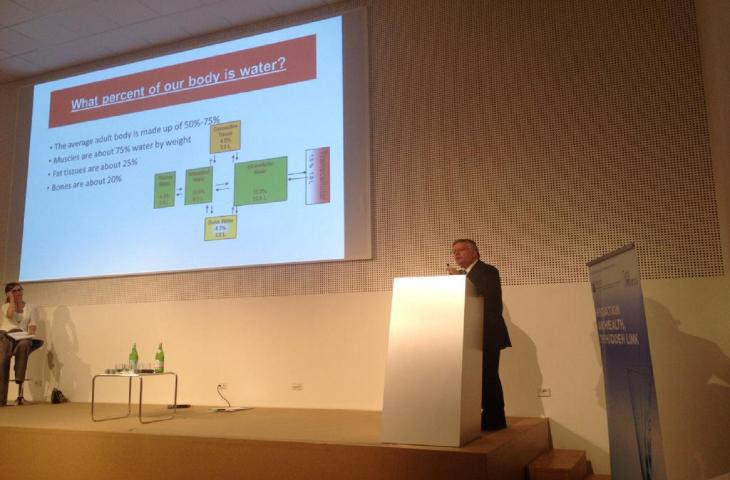MILAN – Proper hydration has a significant impact on reducing the risk of kidney and cardiovascular diseases. Professor Antonio Santoro stepped in to explain its advantages during the international conference on hydration, organised by FEMEC and San Pellegrino at Expo, where top international experts put the request to the Minister of Health for the institution of a National Day of Hydration.
Chronic renal diseases
These are one of the main challenges to public health. Various risk factors, including hypertension, anaemia, smoking, dyslipidaemia, diabetes and others have been identified and addressed with pharmacological interventions. However, in the renal population, there are only a few studies which have evaluated the role of nutrition and water consumption in the risk of kidney and cardiovascular diseases. It has been established that there is an inverse correlation between fluid intake and the prevalence of chronic renal diseases: the higher the fluid intake, the lower the risk.
Proper hydration
In one Australian study, intake of 3.3 l/day was associated with a 30-50% reduction in the risk of kidney disease, compared to a dose of 1.7 l/day. Other studies have appraised the relationship between urine volume and a decline in kidney function and their conclusion is that function slows down significantly more in patients who produce a low volume.
The ten rules
Recently, alongside the Italian Society of Nephrology, the San Pellegrino Group renewed its partnership with the aim of promoting proper hydration as a habit which can limit the development of chronic renal disease. Here are ten rules for preventing it.
- Take regular exercise
- Do not smoke
- Maintain a healthy bodyweight
- Avoid high calorie foods with a substantial fat content
- Reduce the consumption of salt and excessive protein
- Avoid abusing medication, especially non-steroidal anti-inflammatory drugs
- Undergo periodical urine tests
- Find out the level of creatine content in your blood
- Keep your body adequately hydrated, drinking at least a litre and a half of fluids per day
- Reduce the consumption of drinks other than water











